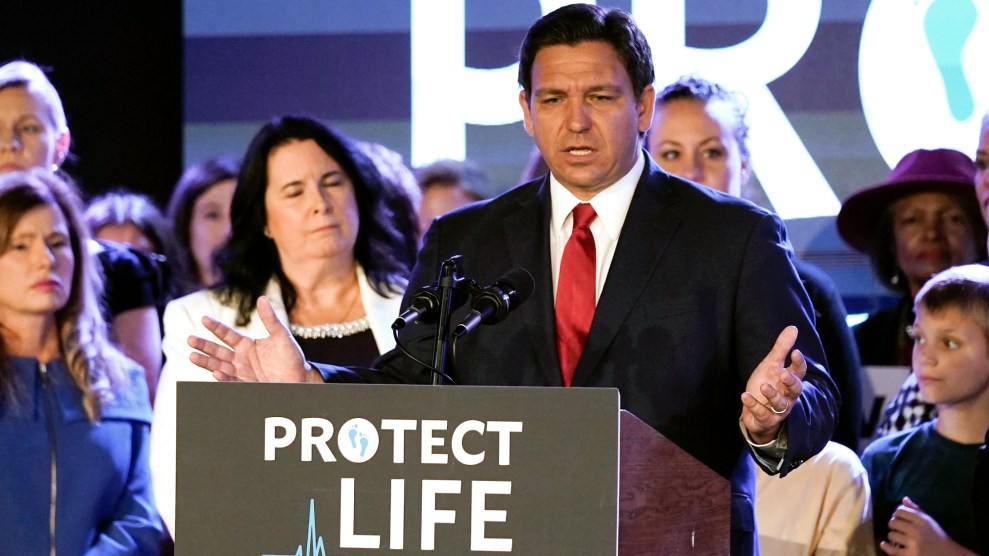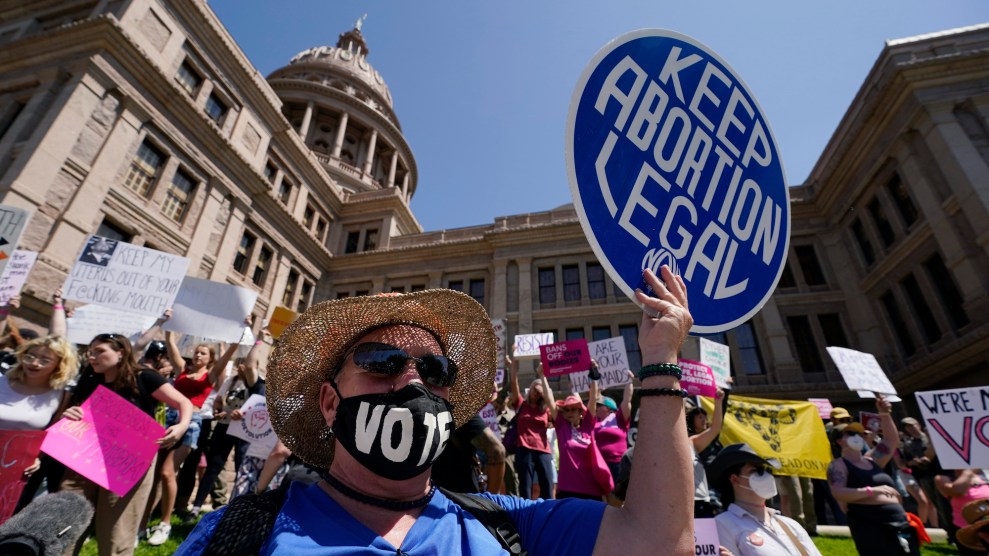
John Raoux/AP
In April, Florida Gov. Ron DeSantis signed a six-week abortion ban into law. Still, that is not enough to prove he’s truly committed to being an anti-abortion advocate.
This week, in an interview with Megyn Kelly, DeSantis touted the Florida law as “the most significant pro-life protections that we’ve ever done,” and promised to “come down on the side of life.” When Kelly pressed him on if that meant he supported a federal law banning abortion, DeSantis reiterated: “I’m proud to be pro-life and I’ll be a pro-life president.”
For anti-abortion advocates, DeSantis’ statement did not make clear he would go beyond millions of American women losing access to reproductive healthcare after Dobbs. They want a federal ban. Following this interview, leading anti-abortion group Susan B. Anthony Pro-Life America decried the governor’s remarks. SBA President Marjorie Dannenfelser said his response was “unacceptable” and that DeSantis was failing to be the “National Defender of Life” that the American people deserve.
Presidential hopefuls former Vice President Mike Pence and Sen. Tim Scott (R-S.tC.) chimed in too. “When I am President,” Pence posted, “I will always champion protections for the unborn in states across the Country and in our Nation’s Capital!” linking to Dannenfelser’s statement. “Republicans should not be retreating on life,” Scott said on X, tagging SBA.
For former Vice-President Pence and Sen. Scott, this was a chance to say: Look at us! We’re even more anti-abortion than the other guy! But the haste from Republican primary candidates to denounce DeSantis represents a fundamental incongruence with the declared conservative position of states’ rights.
In his interview with Kelly, DeSantis said that he views anti-abortion legislation as a “bottom-up movement.” As president, he would strive to be a “leader with the bully pulpit to help local communities and states advance the cause of life.” Their discussion was less about if abortion should be illegal across the country, and more about if Congress would be the one to impose bans instead of state legislatures. DeSantis did not outright come out against a national ban. Instead, he suggested it’s likely not possible under a federalist system.
If a nationwide six-week abortion ban was possible—which is what Mike Pence supports and what pregnant people are already experiencing in several states—it would result in even more women dying. According to researchers, if abortion is banned throughout the United States, maternal deaths would rise by 24 percent. And for Black women, it would be 39 percent. People often do not know they are pregnant at this stage: Six weeks pregnant is two weeks after a missed period; 14 percent to 25 percent of women of childbearing age experience irregular menstruation. This all, of course, is on top of the overwhelming and disqualifying logistics: having time and money; locating a clinic; acquiring medication; getting off of work; finding someone to watch the kids.
DeSantis’ purportedly weak anti-abortion stance would still put four million Floridians of reproductive age at risk of losing care under the law passed in April. These restrictions ripple out to the entire country, too. As Mother Jones reported last year, Florida abortion clinics had served as a resource for patients in the region.
That effect is already being felt. This past March, a Florida woman named Deborah Dorbert carried to term a baby with no kidneys. Her doctors predicted this, but she was unable to get an abortion in her state. Instead, she held him as he took his last breath—living only for 99 minutes.


















